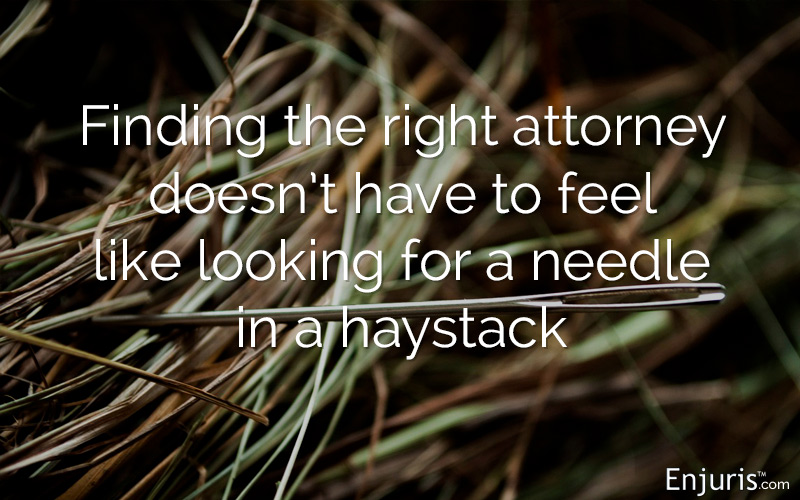
5 steps to choosing the right construction accident attorney for your case
It’s no secret that the construction industry is one of the most dangerous industries in the United States. Construction workers operate at dangerous heights, use large machines and powered equipment, and are routinely exposed to toxic substances.
As you might expect given the nature of the industry, legal claims are common. But with more than 1.3 million active attorneys in the US, how do you find the right attorney for your construction claim?
Here are the 5 steps to help you choose the right construction accident attorney:
Step 1: Identify your problem
The first step to finding the right attorney is understanding your legal issue. Ask yourself the following questions:
- Are you a construction employee who was injured on the job?
- Was your injury the result of a defective product?
- Were you denied workers’ compensation?
- Were you assaulted while on a construction site?
Step 2: Locate a handful of attorneys with the right experience
Once you’ve identified your specific legal issue, you’ll want to locate a handful of attorneys who have experience representing clients with your particular case.
Construction accident claims are a type of personal injury claim, but they have unique challenges. For example, there are a host of potential parties involved in a construction accident who aren’t involved in most other personal injury claims. This might include owners, general contractors, employees, suppliers, manufacturers, and distributors.
So how do you find an attorney with the right experience? Here are 3 primary places to start:
- Personal referrals. Nothing beats a personal referral from a friend or family member. Has a coworker or colleague experienced a similar legal issue? How did they like their attorney? Ask around for recommendations.
- Online directories. There are a number of online directories to help you find an attorney in your area. This includes the Enjuris online directory, of course. Also, many state bar associations maintain a list of attorneys who are certified specialists in a particular area. For example, the Arizona State Bar maintains a list of attorneys certified in the field of workers’ compensation in that state.
- Referral services. There are a number of services available that offer to refer you to an appropriate attorney in your area. In general, you should maintain a healthy amount of skepticism when considering using a referral service. When in doubt, call your local state bar association and ask to be connected with their lawyer referral service.
Step 3: Setup initial consultations
The vast majority of attorneys offer free initial consultations. You can use these free initial consultation to find out if the attorney is right for you. Remember, choosing an attorney isn’t just about selecting the most qualified, it’s also important to find an attorney who you like and work well with. Think of the initial consultation as a job interview.

Worksheet with questions to ask a personal injury attorney to help determine if he or she will be a good fit for your case
Download in PDF format
Step 4: Investigate the attorneys you're considering
In order to properly evaluate your attorney, you’ll need to investigate whether the attorney has ever been disciplined.
Every state has a disciplinary organization that receives and investigates complaints in order to determine whether an attorney has acted inappropriately. An attorney can be disciplined for a host of reasons, from forgetting to pay their bar dues to stealing their client’s money.
Once an attorney is disciplined, the reason for the disciplinary action is made public. If you’re not sure how to reach the disciplinary organization to investigate whether the attorney you’re considering has been disciplined, call your local state bar organization.
Step 5: Work with your attorney
The attorney-client relationship is just that: a relationship. That means it takes the efforts of both the attorney and the client to be successful. Similar to how a doctor needs to know the details of your health in order to make you better, a lawyer needs to know every detail of your case.
Don’t hide anything from your attorney. If there are embarrassing facts or details that you think make your case look weaker, it’s better your attorney finds out from you now then from the other side during trial. Remember, your attorney is on your side, but they must know the weaknesses of your case so they can strategize ways to minimize the impact of those weaknesses.
Good luck! The Enjuris team is rooting for you.
See our guide Choosing a personal injury attorney.
